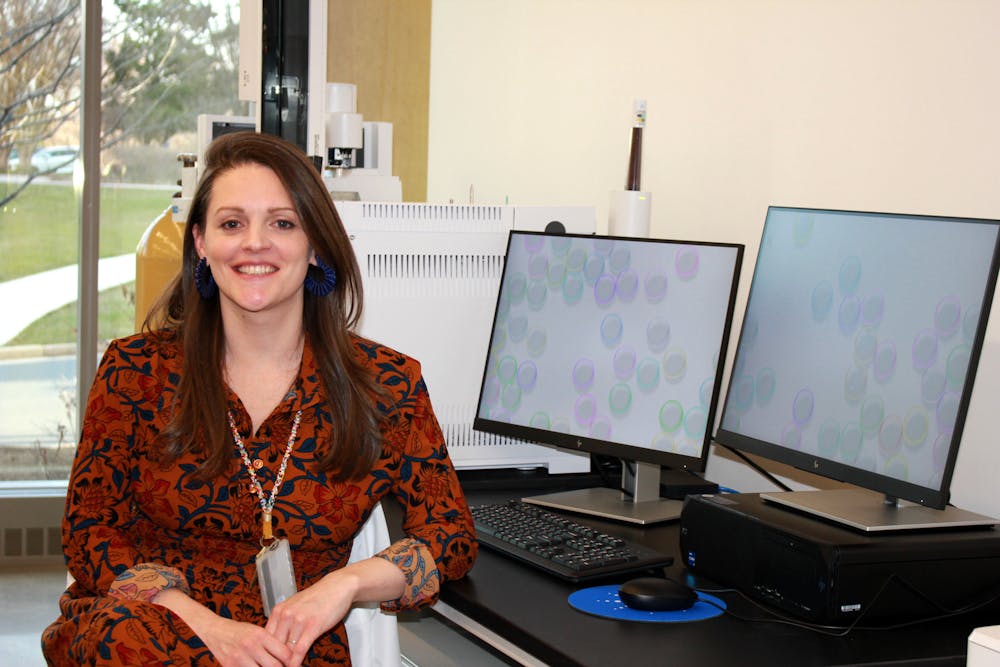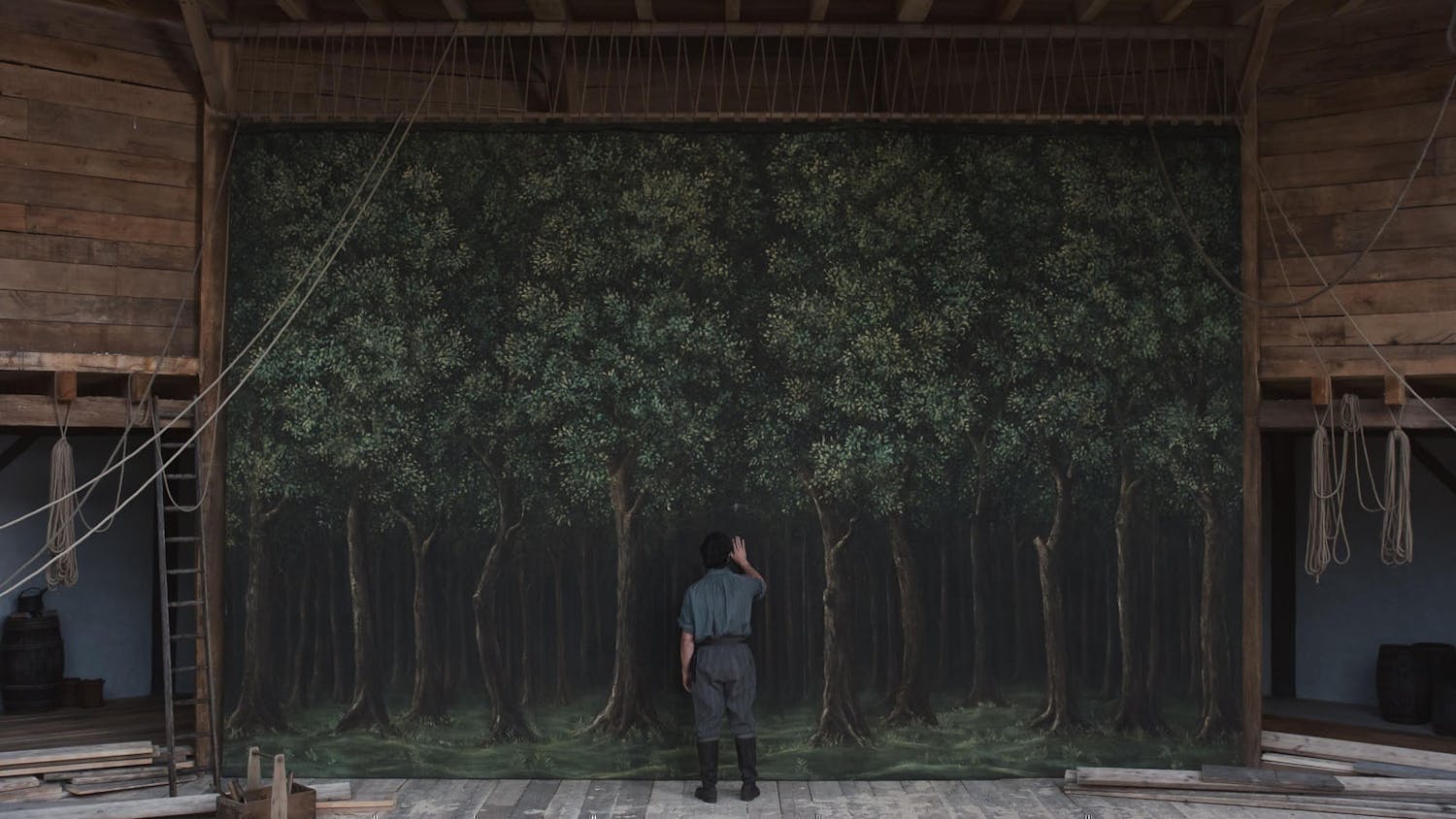American University’s College of Arts and Sciences offers a plethora of theoretical and hard science classes for students to choose from. The college’s Department of Environmental Science is building on this with plans for new science classes, thanks to new assistant professor Chelsea Koch.
Koch is a marine scientist who conducts research on Arctic ecosystems. Specifically, she looks at the ways pollution and climate change affect Arctic Indigenous communities and their local marine food webs. Koch’s research on pollution and climate change is done through measuring biomarkers and stable isotopes in the Arctic’s marine ecosystems.
Koch is also deeply committed to the co-production of knowledge, which often means collaborating with Indigenous communities on environmental research. For example, Koch works with St. Lawrence Island Yupik and Iñupiat communities in Alaska.
The spring 2024 semester marks Koch’s first at AU, where she is teaching “Oceanography,” a 300-level course covering topics such as plate tectonics, marine geography and the ocean processes involved in climate change.
Koch said that the class has no prerequisites and welcomes students from other schools at AU. She aims to make the class digestible for students with no background in hard science, and is excited to teach her students about a topic that she is passionate about.
“I think the most important point that I hope for students to take from this is how important the ocean is to Earth’s climate system,” Koch said. “So, really developing this idea of what we call the ocean-climate nexus and really understanding that we are an ocean planet, and the ocean is really important for regulating climate … And also, it’s so important for our lives from an economic standpoint, from sustainable development.”
Before joining the Department of Environmental Science, Koch spent three years in London, England, working as a post-doctoral researcher at the Natural History Museum.
In London, Koch was part of CINUK, the Canada-Inuit Nunangat-United Kingdom Arctic Research Programme. Koch recently participated in the program’s NGPlastics project, where researchers traveled to Canada and worked with the Inuit community of the Nunatsiavut Government of Newfoundland and Labrador to monitor plastic pollution.
Koch said that community members in Nunatsiavut expressed concerns about plastic pollution entering their food web through the animals they consumed. This prompted her and her colleagues to investigate further.
“Marine plastic can absorb chemicals in the ocean, as it’s out drifting around,” Koch said. “And then it might get eaten by some zooplankton or krill or eaten directly by birds, seabirds, or fish and then it starts to move its way through the food web, and so that’s what we’re looking to address.
Prior to her stint at the National History Museum in London, Koch lived in D.C. where she served as a science officer for the United Nations’ Decade of Ocean Science for Sustainable Development from 2021 to 2022.
Over the years, Koch carved out a space for herself in a field she has been passionate about since childhood.
“I kind of always knew that I wanted to be involved in oceanography or marine science or marine biology,” Koch said.
Originally from Fredericksburg, Virginia, Koch fondly recalls family trips to the beach, igniting her early fascination with the ocean. This interest led her to earn a Master of Science degree in marine science from the University of South Carolina in 2013. Now, as a professor, Koch integrates her work experience and current environmental news into her lessons.
“I’m trying to pull from all my different backgrounds to make class more interesting and kind of not just follow along the textbook,” Koch said. “I really want to tie what we’re doing in class to real world events.”
Koch’s teaching is informed by her work as a marine science planner with the National Science Foundation’s United States Antarctic Program from 2015 to 2017.
Though she enjoyed researching in Antarctica, she pursued her Ph.D. at the University of Maryland, focusing on Alaska. From 2017 to 2021, she was a senior research assistant at the Arctic Research Lab at UMD’s Chesapeake Biological Laboratory, culminating in a Ph.D. in marine, estuarine and environmental science in 2021.
Koch also has experience as a program analyst for the National Oceanic and Atmospheric Administration, which is run by the U.S. Department of Commerce. She applied to join the Department of Environmental Science because the department was interested in researchers who were focused on topics like climate justice and Indigenous knowledge.
“It just seemed like a really good fit to be able to find a place to be able to support that kind of work that I wanted to do,” Koch said. “That type of research where I can work with communities and build those relationships while addressing environmental issues like climate change in the Arctic.”
Koch was drawn to return to D.C. for its abundance of local agencies working on ocean science and climate policy.
Upon her arrival in January, Koch said she felt welcomed by the environmental science faculty.
K.L. Knee, an associate professor and the department chair for the Department of Environmental Science, said that she is pleased to have Koch as a colleague. Knee values the marine science experience that Koch brings to the department, and believes Koch is doing unique research and expanding the department’s course offerings.
“I think in general; we have a lot of untapped interest among our students for more classes about coastal and marine issues, because really, I guess we offer more now than we used to,” Knee said. “We have oceanography. We have a sustainable seafood class and we have a marine ecosystems and conservation class, and then Dr. Koch is going to develop more classes.”
Koch said that she is currently developing two upper-level courses, “Arctic Systems Science” and “Knowledge Co-Production in Earth and Environmental Sciences.”
“Arctic Systems Science” will touch on how climate change is impacting Arctic ecosystems, while “Knowledge Co-Production in Earth and Environmental Sciences” will provide instruction on community-based and ethical research methods. Koch is hoping to offer “Arctic Systems Science” in the 2024-25 academic year.
Koch's current oceanography class provides some students the opportunity to build on their knowledge of the ocean.
Emma Heerkens, a student in Koch’s oceanography class, is taking the course as an elective for her environmental science minor. Heerkens is a public relations major with a double minor in political science and environmental science, and said she was glad to find a course that covered one of her interests.
“I don’t like how when you take an environmental science class, it’s usually above the earth,” Heerkens said. “I like learning about the ocean and how tides work and waves and how the moon affects that.”
In addition to teaching “Oceanography” and planning new classes, Koch is open to giving advice to students interested in marine science careers.
“I’m also trying to talk about different career opportunities that exist, different internships and trying to talk a bit about my own research experiences,” Koch said. “If someone does have an interest in investigating the things that I am talking about, I’d be happy to meet with students that are interested in pursuing this kind of work.”
“I’m hoping that it’s a way of just getting people hooked and thinking about how they could even continue with their path that they’re interested in, but how the ocean might be able to be woven into the questions about society or politics or whatever it is that they're interested in.”
This article was edited by Clair Sapilewski, Sara Winick and Abigail Pritchard. Copy editing done by Luna Jinks, Isabelle Kravis and Charlie Mennuti.





